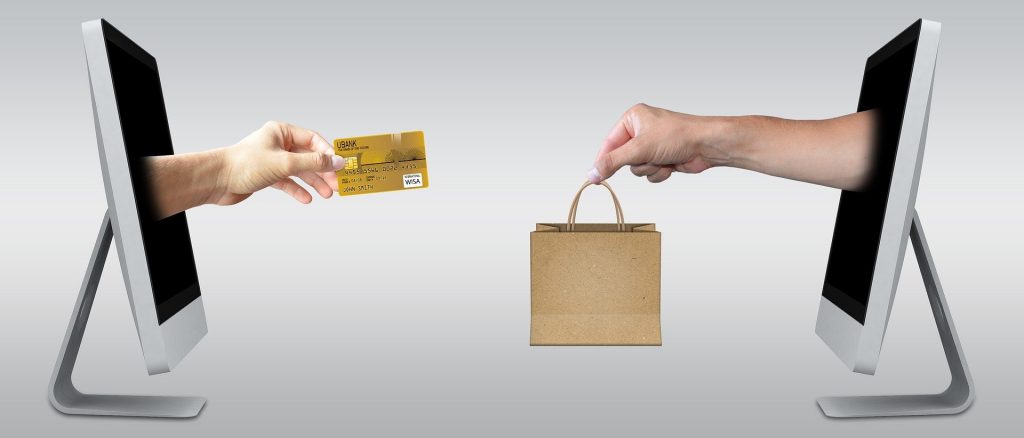The holiday countdown is on and more of us are shopping online, especially during COVID-19. Unfortunately, it's also the season for online scams.
According to the Better Business Bureau, online purchase scams expose your identity and financial information, which is the riskiest form of consumer fraud. Below are some basic steps to protect yourself this holiday season:
1. Ship to a secure location
If you are not going to be home to receive your package, consider shipping your purchase to family, friends or use secure lockers (if available). You may also opt for curb size pick up.
2. Only use official retailer apps to shop
Download retail apps from reputable mobile stores, such as Galaxy Apps, the Apple App Store, Amazon App, and Google Play store. Don’t be fooled by copy-cat branding. Using third-party apps can expose you to malicious apps masquerading as the real thing.
When visiting a retailer’s website, ensure you double-check the spelling of the store’s website before providing your credentials. Lastly, ensure the website is encrypted (you can check this in the URL as the website should have HTTPS vs HTTP before the URL).
3. Don't save your credit card information on your accounts
While it may be convenient to store personal and payment information in your online accounts, it does come with risk. Reputable online retailers are still vulnerable to security breaches, which could leave your personal details and payment information exposed.
Consider using a secondary payment layer, such as Paypal, Apple Pay or Google Pay.
4. Don't buy from unfamiliar retailers without confirming their legitimacy
Scammers can easily build fake retail shops to steal your personal and credit card information. Spend the time to confirm if the online retailer is legitimate. Be vigilant when looking for a deal and don't jump at the lowest price. Extremely low prices could be a red flag that the business doesn't have those items in stock and may only exist to get your personal information. If it too good to be true, it very likely is.
5. Never make purchases on public Wi-Fi
You might be tempted to make quick purchases while at your local coffee shop or waiting for an appointment, however public Wi-Fi typically shares the same passwords, which allows hackers to intercept the signal from your device. Scammers are also able to create free Wi-Fi networks that are designed to steal your information.
If you must conduct over public Wi-Fi, consider using a VPN to secure your connection.
Check out our blog post on using personal info on public Wi-Fi networks.
6. Use strong passwords
A weak password can allow a scammer to use your account to purchase an item and leave you stuck paying the bill. Secure your account with a strong password and "Santa123" won't do. Here are some tips on how:
- Use a complex set of at least ten lowercase letters, upper case letters, numbers, and symbols.
- Use Multi-factor authentication if the retailer offers it
- Don't use personal information such as birthdate, children’s names or favourite colour
- Never use the same password. No matter how strong your password, each account you have should be unique. Using the same password on multiple accounts would expose all of your accounts, should any breach occur.
- Consider using a secure password manager to generate strong passwords and safely store them.
7. Be vigilant for email scams
Retailers are now constantly emailing weekly sales and special discounts, especially during the holidays. Carefully examine each email before opening it. Clicking on emails from unknown senders and unrecognizable sellers could infect your computer with viruses and malware. If you are unsure, play it safe and delete it, don't click on any links or open attachments.
Check out our blog about identifying phishing scams here.
8. Buy with a credit card rather than a debit. Prepaid Debit is also acceptable
Credit cards protect you from unauthorized purchases, however, a debit card is a direct withdrawal from your bank account. If a credit card is not an option, you have the option of prepaid Debit or Credit card to limit your exposure.
9. Periodically check your bank and credit card statements
After each online purchase, you should review your banking and credit statement for fraudulent charges. You should also check once a week or set up account alerts. Most financial institutions provide limited time to dispute charges.
Stay safe online and offline!
The holidays are a season of giving. And giving someone a virus isn’t the best way to wrap up 2020! Follow those steps to ensure you enjoy this festive season the safe way.
Prepare yourself by learning more about cyber security. See the 12 scams of the holiday season












